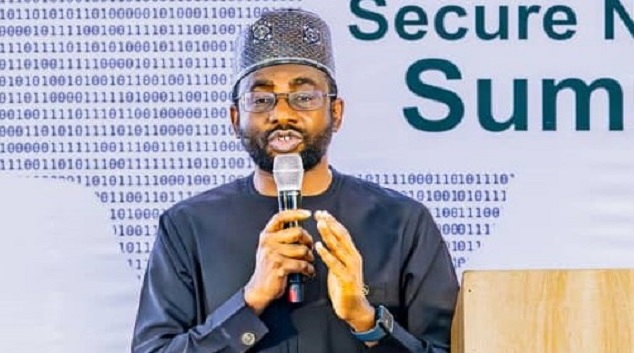E-Business
Flexenclosure Strengthens Management with New CFO

Flexenclosure, a designer and manufacturer of prefabricated data centre buildings and intelligent power management systems for the ICT industry, has appointed Göran Bergström as the company’s new chief financial officer (CFO).
As new CFO, Göran Bergström will have overall responsibility for Flexenclosure’s financial activities. Mr. Bergström previously spent 11 years as CFO for leading European telecom operator Tele2 Sweden and was also CFO for 4T (WyWallet), a mobile payment joint venture between four mobile operators.
Earlier positions include credit manager and operations manager for IT and industrial companies.
Flexenclosure is a fast growing supplier of advanced infrastructure for the information and communications technology industries. Its two key products are eSite, a hybrid power system for off-grid and bad-grid cell sites that cuts diesel costs by up to 90 per cent, and eCentre, custom-designed, prefabricated data centre buildings that are fast to deploy, energy efficient and easy to expand.
The need for speed of deployment and the benefits of prefabricated data centre buildings, as well as the trend towards energy efficient and green power solutions, have made Flexenclosure’s products increasingly popular.
The company is experiencing triple digit order growth so far this year and expects revenues to increase to $55-60m for 2014.
”We are delighted to have Göran joining our management team,” said David King, CEO, Flexenclosure.
“He brings a wealth of experience from the IT and telecom sectors and in managing global expansion stage companies – an invaluable skillset given the rapid growth of the company.”
E-Business
NITDA DG Says FG On Course to Secure Digital Economy in the Age of AI

Kashifu Inuwa Abdullahi CCIE, the Director General of National Information Technology Development Agency (NITDA), has said that Nigeria is taking decisive steps to safeguard its digital future by strengthening cybersecurity, enhancing infrastructure, and building human capacity to harness the power of Artificial Intelligence (AI).

He stated this while delivering a keynote address titled ‘Securing Digital Economy: Strengthening Infrastructure and Harnessing the Power of Artificial Intelligence’ at the Cyber Nigeria Summit, organised by the Cybersecurity Experts Association of Nigeria (CSEAN).
Inuwa described the digital economy as the heartbeat of Nigeria’s development agenda, noting that while ICT contributes about 17 percent to the country’s GDP, digital technologies influence nearly every sector of the economy. The service sector alone, he said, accounts for about 58 percent of national output, demonstrating the deep integration of digital tools into everyday life.
He cautioned that the rise of AI has further transformed cybersecurity dynamics. While AI enhances productivity and innovation, it also equips cybercriminals with advanced tools to execute attacks with greater precision and scale. “
Cybercrime now costs the world over 10 trillion dollars annually, making it the most lucrative form of crime globally. The World Economic Forum ranks cybersecurity among the top five global threats, showing that our strategies must evolve beyond physical protection,” he said.
Inuwa noted that securing Nigeria’s digital economy begins with designing infrastructure that prioritises security from the foundation. Digital infrastructure, he said, now extends beyond servers and networks to include utilities, telecommunications, and even autonomous vehicles.
“If a hacker gains access to an autonomous car, the consequences could be disastrous,” he warned. He emphasised that AI systems depend on three critical elements: data, compute power, and algorithms, which must all be protected. “If any of these are compromised, the entire system becomes vulnerable.”
He also pointed out that human error remains the leading cause of cyber incidents worldwide, accounting for 90 to 95 percent of breaches. Despite two decades of global awareness efforts since Cybersecurity Awareness Month began in 2004, this figure has remained constant. “Cybercriminals exploit human weakness because it’s easier to manipulate behavior than to break through advanced systems,” he explained.
According to him, cybersecurity in Nigeria is built on four strategic pillars: governance, capacity building, incident management, and collaboration. Under the governance framework, the Nigerian Cybercrime Act provides the foundation for coordination and accountability. Recently amended to reflect emerging digital realities, the Act is complemented by a Presidential Executive Order designating critical digital information infrastructure as part of Nigeria’s national assets. “This milestone allows our cyberspace to be recognised and protected as a national highway,” he said.
On capacity building, Inuwa highlighted the growing global demand for cybersecurity professionals, with an estimated gap of 4.4 million workers worldwide and over 140,000 in Nigeria alone. He described this gap as an opportunity for national empowerment, given Nigeria’s youthful population. Through initiatives such as the 3 Million Tech Talent (3MTT) programme, the government aims to train Nigerians in 12 high-demand digital skills, including cybersecurity.
He further cited the Digital Literacy for All initiative and the National Digital Literacy Framework (NDLF), which target 95 percent digital literacy by 2030 and 70 percent by 2027. Starting next year, digital literacy, including cybersecurity, will be taught from kindergarten through tertiary institutions. This policy, he said, will nurture a digitally conscious and responsible generation.
The third pillar, incident management, focuses on rapid response and coordination. Inuwa revealed that the National Cybersecurity Coordination Centre (NCCC), established under the Office of the National Security Adviser, is now fully operational and coordinates responses to cyber incidents nationwide. Sectoral CERTs have also been established in key areas such as finance, communication, and law enforcement, ensuring a more unified national response.
He stressed that collaboration remains essential for success, as cybersecurity cannot be managed in isolation. Nigeria, he said, works closely with the African Union, Smart Africa, international CERTs, and major global technology companies to strengthen collective defense mechanisms.
The DG urged Nigerians to adopt good cyber hygiene, using strong passwords, enabling multi-factor authentication, and avoiding phishing scams. He also encouraged prompt reporting of cyberattacks, emphasising that transparency is vital for collective resilience.
In partnership with the Office of the National Security Adviser, NITDA is working to establish a National Cybersecurity Architecture that promotes accountability, information sharing, and unified national defense.
E-Business
Firm Introduces a New Training ‘Large Language Models Security’

The course is developed by Kaspersky AI Technology Research Center and aims to equip cybersecurity professionals with the essential skills to understand, evaluate and defend against vulnerabilities in large language models (LLMs).

The advent of LLMs has revolutionised the way companies develop and interact with Artificial Intelligence (AI) systems, while simultaneously introducing new and intricate security challenges.
A Kaspersky study has revealed that already in 2024 more than half of companies have implemented AI and Internet of Things (IoT) in their infrastructure. As these technologies become increasingly embedded in corporate systems and processes, understanding how they can be targeted, what vulnerabilities can be exploited for cyber attacks and how to defend against them is no longer optional—it’s a vital skill for cybersecurity professionals.
To address this critical need, Kaspersky has expanded its renowned Cybersecurity Training portfolio with a new online course dedicated to the security of LLMs. Designed to provide a solid foundation in this emerging field, the course equips professionals with the expertise to assess vulnerabilities, implement effective defences and design resilient AI systems. Participants will engage with real-world cases and practical assignments, honing their ability to deploy robust security measures and enhance the resilience of LLM-based applications.
The course draws upon the extensive expertise of the Kaspersky AI Technology Research Center, whose specialists have been dedicated to AI in cybersecurity and secure AI for nearly two decades—advancing the detection and mitigation of a wide spectrum of threats. Led by Vladislav Tushkanov, Research Development Group Manager at Kaspersky, the programme offers an engaging learning experience through compelling video lectures, practical hands-on labs and interactive exercises, enabling participants to:
- Explore exploitation techniques such as jailbreaks, prompt injections and token smuggling to understand how to defend against them.
- Develop practical defence strategies across various levels—model, prompt, system and service.
- Apply structured frameworks for assessing and enhancing LLM security.
This training is useful for those starting their careers in AI cybersecurity, engineers building or integrating LLMs, and specialists working closely with AI infrastructure.
“The rise of large language models has revolutionised the approach taken by organisations to building and engaging with AI, opening new horizons of possibility. Yet, this technological leap also brings intricate security puzzles that demand immediate attention.
For cybersecurity experts, mastering the art of spotting, exploiting and shielding against these vulnerabilities has become a vital craft. That’s why we developed this specialised course—to arm professionals with the insights and hands-on tools necessary to safeguard LLM-driven applications and stay one step ahead of the evolving threat landscape,” says Vladislav Tushkanov, Research Development Group Manager at Kaspersky.
E-Business
Winning the End-of-Year Market in Nigeria: Strategies for Unstoppable Growth

By Reuben Kalu
The final quarter of the year, especially November and December, is the highest-selling season for many businesses in Nigeria. Consumers are more eager to spend, festive activities drive demand, and competition among brands intensifies. The question is: how do you ensure your business doesn’t just participate, but dominates? The answer lies in strategic positioning. To attract the larger market, businesses must go beyond price slashes and quick promotions. Instead, they need to study their market, understand their target audience, and build a comprehensive marketing campaign that covers every aspect of the sales funnel.

Start with social media advertising—platforms like Instagram, Facebook, TikTok, and LinkedIn are critical to spark interest and build awareness. Then, ensure your landing pages are optimized for conversion, offering fast-loading, mobile-friendly designs with persuasive copy and clear calls-to-action. Add display marketing and retargeting so your brand stays in front of prospects even after they leave your site.
But here’s the game-changer: e-commerce integration. Nigerian consumers are increasingly shopping online, and mobile-first convenience is driving sales. Businesses that invest in seamless e-commerce platforms, smooth checkout experiences, flexible payment options, and reliable logistics will stand out. Coupling this with targeted email marketing ensures your audience receives personalized offers that feel timely and relevant.Q4 (October to December) is a golden window for Nigerian businesses. Consumer demand peaks, emotions run high, and people are more open to spending for the holidays, weddings, gifting, lifestyle upgrades, and end-of-year celebrations. Businesses that plan well now will not just attract sales, but build long-term brand loyalty.
Here’s my advice and strategy breakdown tailored for Nigerian businesses 👇
1. Study the Market & Audience Deeply
• Consumer behavior: Nigerians spend more in Nov–Dec on fashion, food, drinks, travel, gadgets, and lifestyle.
• Pain points: Price sensitivity, trust issues (original vs fake), delivery timelines, and festive discounts.
• Audience segmentation: Identify core buyers (youth, families, corporate gift buyers, professionals, event planners).
2. Positioning for Growth
💡 Stand out by being trustworthy, emotionally engaging, and present across multiple touchpoints.
Your messaging should tie into aspiration, family, gifting, and success — key emotional drivers in Nigeria’s festive season.
3. Marketing Strategies to Supercharge Growth
🔹 Social Media Adverts
• Run targeted ads on Facebook, Instagram, TikTok, and LinkedIn depending on your niche.
• Use festive creatives (end-of-year countdowns, Christmas/New Year imagery, Naija vibes).
• Focus on short videos, reels, and carousels showing real-life product usage.
🔹 Landing Page Optimization
• Create seasonal offers landing pages (e.g., “Naija December Deals” or “End-of-Year Mega Sale”).
• Make checkout easy: fast-loading, mobile-optimized, clear CTAs.
• Add urgency triggers (countdown timers, limited stock notifications).
🔹 Display Marketing
• Partner with popular blogs, lifestyle sites, and news platforms Nigerians consume daily.
• Use Google Display Ads to keep visibility high across the web.
🔹 Re-Targeting
• Many Nigerians browse without buying. Retarget via Facebook Pixel, Google Ads, or email reminders.
• Example: “Still thinking about it? Prices go up in 48 hours!”
🔹 E-Marketing (Email & WhatsApp)
• Send personalized festive newsletters (holiday gift guides, exclusive discounts).
• Use WhatsApp broadcast lists for flash sales and loyalty offers.
• Segment lists into VIP customers, dormant leads, and prospects.
🔹 Brand Messaging
• Keep your narrative emotional and festive: “Celebrate Success. Share Love. Gift Original.”
• Push authenticity, reliability, and urgency.
• Leverage Nigerian pride and relatable language.
4. Pro Tips to Dominate
• Bundle deals & gift packages: Nigerians love value. Bundle products for family & gifting.
• Leverage influencers: Micro-influencers in Nigeria drive trust faster than traditional ads.
• Customer service as a differentiator: Fast delivery, responsive WhatsApp support, no hidden charges.
• SEO + SEM: Optimize your Google presence so when people search “Best Gifts in Lagos” or “Buy Watch in Abuja,” you show up first.
Finally, sharpen your brand messaging—create campaigns that evoke emotions, highlight your unique value, and position your brand as the first choice for holiday spending. When combined, these efforts don’t just drive end-of-year sales; they build loyalty, expand market share, and create momentum for the new year. The brands that win this season are those that take a 360-degree marketing approach—where social media, e-commerce, advertising, funnels, and storytelling work together to supercharge growth.
✅ Bottom Line:
To win in November & December, businesses in Nigeria must build a full-funnel campaign — from awareness (social ads, display) to consideration (landing pages, retargeting) to conversion (email/WhatsApp, strong CTAs) and loyalty (after-sales experience).
This is how you not only sell more but also own your market space going into 2026.

 Telecom2 days ago
Telecom2 days agoAirtel Africa Foundation Launches 100 Tech Scholarships for Nigerian Undergraduates

 E-Financial2 days ago
E-Financial2 days agoCBN Makes case for Open Banking Policy @ Nigeria Fintech Week

 Telecom2 days ago
Telecom2 days agoNCC’s Maida Calls for Unified Action to Accelerate Broadband and Safeguard Telecom Infrastructure

 E-Business2 days ago
E-Business2 days agoWinning the End-of-Year Market in Nigeria: Strategies for Unstoppable Growth

 E-Business2 days ago
E-Business2 days agoFirm Introduces a New Training ‘Large Language Models Security’

 E-Financial2 days ago
E-Financial2 days agoBeware of AfriQuantumX Ponzi Scheme- SEC

 News1 day ago
News1 day agoReport Shows Attackers Impersonate Major Airline Brands in New Business Email Scam

 Telecom2 days ago
Telecom2 days agoGlobacom Champions Broadband Investment, Infrastructure Security @ NCC Roundtable

























